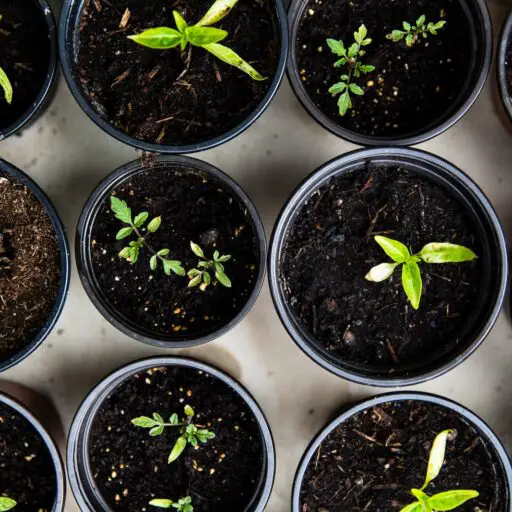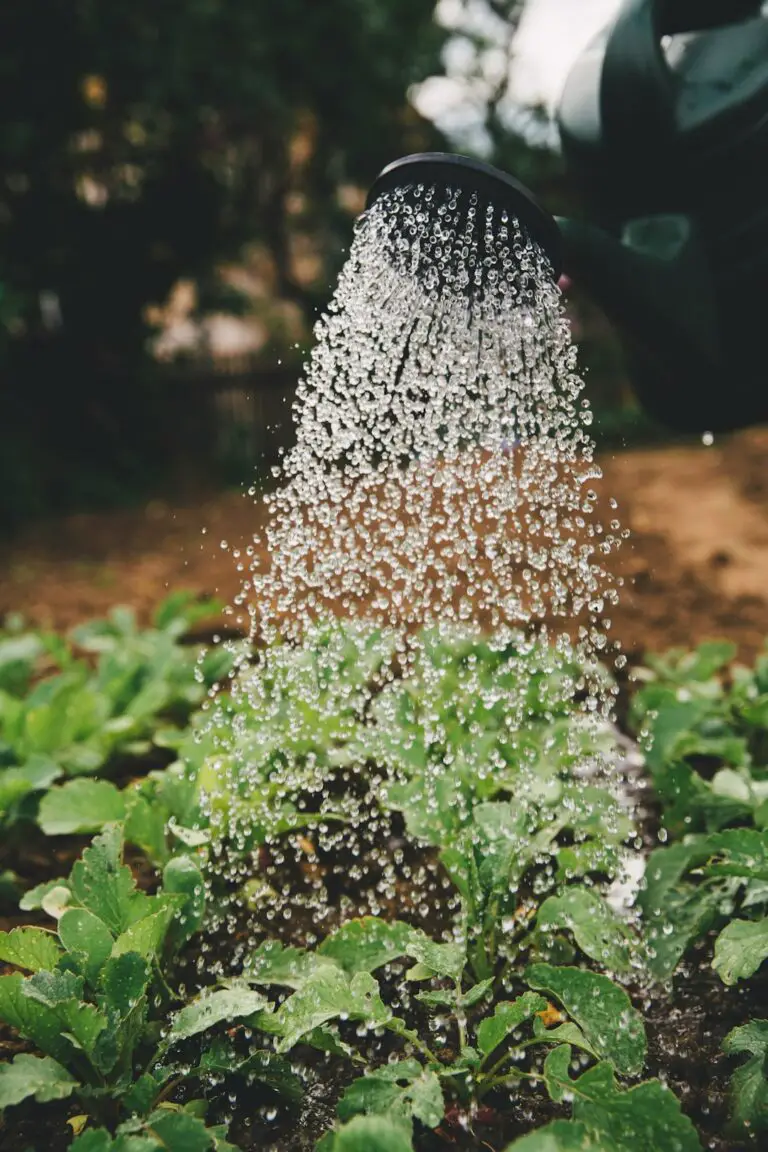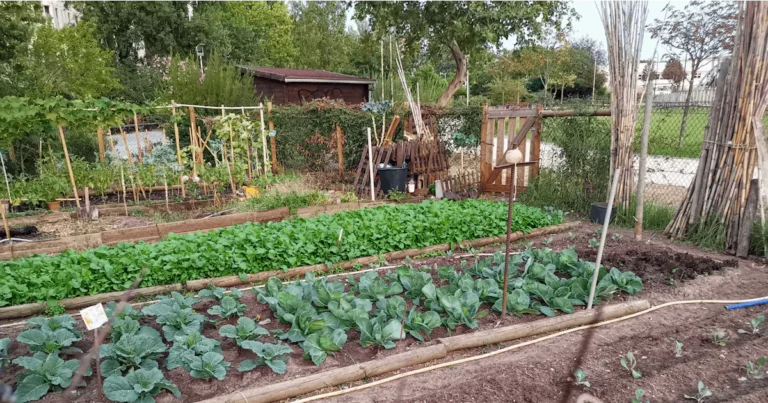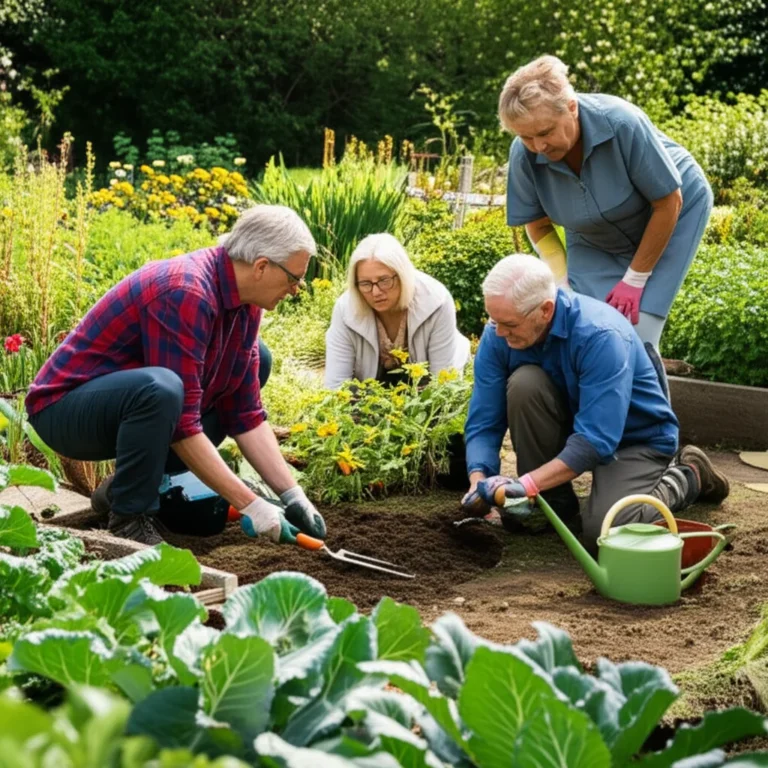Support our educational content for free when you purchase through links on our site. Learn more
Imagine this: a group of seniors gathered around a raised garden bed, swapping stories while planting vibrant marigolds and juicy tomatoes. Not only are they cultivating a beautiful garden, but they’re also nurturing their brains in ways science is only beginning to fully understand. At Community Gardening™, we’ve witnessed firsthand how gardening can transform mental sharpness, memory, and even mood for older adults. Did you know that seniors who garden daily can reduce their risk of dementia by over a third? Intrigued? Keep reading to discover the 10 remarkable cognitive benefits that make gardening a natural brain booster, plus practical tips to make gardening accessible and enjoyable at any age.
Whether you’re a seasoned green thumb or just curious about how digging in the dirt could sharpen your mind, this article digs deep into the science, stories, and strategies behind gardening’s powerful impact on senior cognitive health. From boosting memory and problem-solving skills to enhancing social connections and sensory stimulation, gardening offers a holistic approach to aging well. Ready to get your hands dirty for a healthier brain? Let’s grow together!
Key Takeaways
- Gardening boosts memory, focus, and executive function by engaging seniors in planning, problem-solving, and sensory-rich activities.
- Physical activity combined with nature exposure reduces stress and improves sleep, both crucial for cognitive health.
- Community gardening combats social isolation, enhancing language skills and emotional well-being.
- Adaptive tools and garden designs make gardening accessible and enjoyable for seniors with varying physical abilities.
- Regular gardening can lower the risk of dementia by up to 36%, making it a powerful, natural brain health strategy.
Ready to cultivate your cognitive health? Let’s dig in!
Table of Contents
- ⚡️ Quick Tips and Facts
- 🌱 Unearthing the Roots: A Brief History of Horticultural Therapy & Senior Well-being
- The Green Prescription: 10 Remarkable Cognitive Benefits of Gardening for Seniors
- 1. 🧠 Sharpening the Mind: How Gardening Boosts Memory & Focus
- 2. 💡 Problem-Solving Prowess: Navigating Garden Challenges & Cognitive Agility
- 3. 🎨 Nurturing Creativity: Designing, Planning, & Expressing Through Plants
- 4. 🗣️ Language & Communication: The Social Seedbed of Shared Gardening
- 5. 🧘♀️ Stress Reduction & Mental Clarity: Finding Zen Among the Zucchinis
- 6. 😴 Better Sleep, Brighter Days: The Restorative Power of Outdoor Activity
- 7. 🎯 Enhanced Executive Function: Planning, Prioritizing, & Perfecting Your Plot
- 8. 🛡️ Guarding Against Cognitive Decline: Proactive Steps in the Garden
- 9. ✨ Sensory Stimulation: Engaging All Five Senses for Brain Health
- 10. 🏆 A Sense of Purpose & Achievement: Cultivating Self-Esteem & Mental Resilience
- 🏡 Adapting the Garden: Making it Senior-Friendly & Accessible for Continued Cognitive Engagement
- 🤝 Social Sprouts: Community Gardening & Combating Isolation for Enhanced Mental Well-being
- 🌿 Beyond the Blooms: Other Therapeutic Aspects of Gardening for Seniors
- 🍎 From Plot to Plate: Nutritional Benefits & Healthy Eating for a Healthier Brain
- ☀️ Safety First: Sun, Hydration, and Smart Gardening Practices for Senior Gardeners
- 👨👩👧👦 Involving Family & Caregivers: A Shared Green Journey for Intergenerational Brain Health
- ❓ Common Misconceptions About Senior Gardening & Cognitive Benefits
- ✅ Conclusion: Reaping the Rewards of a Green Thumb for a Sharper Mind
- 🔗 Recommended Links: Digging Deeper into Senior Gardening Resources
- ❓ FAQ: Your Burning Gardening Questions Answered
- 📚 Reference Links: Our Sources & Further Reading on Horticultural Therapy
Here is the main body of the article, written according to your specifications.
⚡️ Quick Tips and Facts
Welcome, fellow earth-lovers! Before we dig deep into the cognitive treasure chest that is gardening, let’s sprinkle some quick, mind-blowing facts to get your trowels twitching. Here at Community Gardening™, we’ve seen these benefits firsthand, and the science backs us up!
- Dementia Defense: Daily gardeners may have a 36% lower risk of developing dementia compared to their non-gardening peers. Now that’s what we call proactive planting!
- Brain-Booster Proteins: Just 20 minutes of light gardening can significantly increase levels of Brain-Derived Neurotrophic Factor (BDNF) and Platelet-Derived Growth Factor (PDGF) in seniors. Think of these as miracle-gro for your brain cells!
- Full-Body Workout: Gardening is a legitimate, low-impact exercise that engages multiple muscle groups, helping you meet the CDC’s recommendation of 150 minutes of moderate-intensity activity per week.
- Stress, Be Gone! The “soft fascination” of nature helps reduce mental fatigue and irritability, making the garden a sanctuary for your mind.
- Vitamin D Boost: Soaking up some sun while tending to your plants helps your body produce Vitamin D, which is crucial for bone health and mood regulation.
- Better Diet, Better Brain: Gardeners are more likely to eat their veggies (shocking, we know!) and often have lower BMIs, which is fantastic for overall health and, you guessed it, brain function.
🌱 Unearthing the Roots: A Brief History of Horticultural Therapy & Senior Well-being
You might think this whole “gardening for brain health” thing is a new trend, but humans have known about the healing power of plants for centuries. The concept of horticultural therapy—using plants and gardening to improve physical and mental health—has deep roots. Dr. Benjamin Rush, a signer of the Declaration of Independence, first documented the positive effects of gardening on individuals with mental illness back in the 19th century.
Today, what was once intuitive wisdom is now backed by hard science. We’ve moved from simply knowing that getting your hands in the dirt feels good to understanding why. Studies, like one published in Preventive Medicine Reports, are now measuring the specific biological changes, like boosts in brain-nerve growth factors, that occur after just one gardening session. It’s a beautiful marriage of age-old practice and modern science, proving that sometimes the most powerful medicine is right in your backyard.
The Green Prescription: 10 Remarkable Cognitive Benefits of Gardening for Seniors
Alright, let’s get to the root of the matter. Why is a simple patch of dirt so powerful for the senior brain? It’s not just about pretty flowers; it’s about a complex interplay of activities that challenge and delight the mind. We see it every day in our community gardening plots.
1. 🧠 Sharpening the Mind: How Gardening Boosts Memory & Focus
Gardening is a masterclass in memory and focus. You have to remember planting schedules, the names of different plants (hello, Eschscholzia californica!), and their specific needs for sunlight and water. This isn’t rote memorization; it’s active, engaged learning.
A fascinating study with seniors in South Korea found that a single 20-minute gardening session led to a significant increase in Brain-Derived Neurotrophic Factor (BDNF). BDNF is a protein that supports the survival and growth of neurons, especially in the hippocampus—the brain’s memory hub. So, when you’re deciding where to plant your tomatoes, you’re literally fertilizing your brain’s memory circuits.
2. 💡 Problem-Solving Prowess: Navigating Garden Challenges & Cognitive Agility
What do you do when aphids decide your roses are an all-you-can-eat buffet? Or when a surprise late frost threatens your tender seedlings? You problem-solve! Gardening is a constant puzzle. It requires you to observe, analyze, and adapt. This process is a workout for your executive functions—the set of mental skills that include flexible thinking and problem-solving. Every challenge, from amending soil to designing a pest-control strategy, keeps your cognitive gears turning.
3. 🎨 Nurturing Creativity: Designing, Planning, & Expressing Through Plants
Your garden is a blank canvas. Choosing color combinations, arranging plants by height and texture, and planning for seasonal blooms are all deeply creative acts. This isn’t just about aesthetics; it’s about spatial reasoning and long-term planning. We have some amazing Garden Design Ideas that can spark your imagination. This creative outlet provides a profound sense of accomplishment and personal expression, which is a huge boost for mental well-being.
4. 🗣️ Language & Communication: The Social Seedbed of Shared Gardening
Gardening is rarely a solitary activity for long. Whether you’re swapping seeds with a neighbor, joining a garden club, or participating in one of our Community Garden Events, you’re engaging in conversation. You’re learning new terms, sharing advice, and telling stories. This social interaction is vital for cognitive health, as it keeps language skills sharp and combats the isolation that can contribute to cognitive decline.
5. 🧘♀️ Stress Reduction & Mental Clarity: Finding Zen Among the Zucchinis
Ever notice how the world’s worries seem to melt away when you’re pruning a rose bush? There’s a scientific reason for that. As the BBC reports, nature provides a “soft fascination” that helps restore our capacity for directed attention. Unlike a busy city street that bombards your senses, a garden engages them gently. This reduces stress, anxiety, and mental fatigue, creating space for clarity and calm. As the first featured video in this article points out, gardening can significantly reduce stress, even for beginners.
6. 😴 Better Sleep, Brighter Days: The Restorative Power of Outdoor Activity
The combination of moderate physical exercise, exposure to natural light, and reduced stress is a perfect recipe for a good night’s sleep. Quality sleep is when the brain does its housekeeping—clearing out toxins and consolidating memories. By helping regulate your circadian rhythm, a daily dose of gardening can lead to more restorative sleep and, consequently, a sharper mind during the day.
7. 🎯 Enhanced Executive Function: Planning, Prioritizing, & Perfecting Your Plot
A successful garden doesn’t happen by accident. It requires planning (what to plant where), prioritizing (weeding now, watering later), and organization (keeping track of tools and supplies). These are all high-level cognitive tasks that fall under the umbrella of executive function. Regularly engaging these skills in the garden is like taking your brain to the gym, keeping it strong and agile.
8. 🛡️ Guarding Against Cognitive Decline: Proactive Steps in the Garden
This is the big one. Can gardening actually help ward off dementia? The evidence is incredibly promising. A long-term Australian study found that daily gardeners had a 36% lower risk of dementia. Why? It’s likely a combination of all the factors we’re discussing: physical activity, cognitive stimulation, stress reduction, and social engagement. It’s a holistic activity that supports the brain from every angle.
9. ✨ Sensory Stimulation: Engaging All Five Senses for Brain Health
Gardening is a feast for the senses, and this is fantastic for the brain.
- Touch: The feeling of cool soil, the rough texture of a leaf, the delicate petals of a flower.
- Smell: The fragrance of lavender, the earthy scent of rain on soil, the fresh aroma of mint.
- Sight: The vibrant colors of blooms and the lush green of foliage.
- Sound: The buzzing of bees, the rustling of leaves, the chirping of birds.
- Taste: The sweet burst of a sun-ripened tomato right off the vine.
This rich sensory experience engages different parts of the brain, creating new neural pathways and strengthening existing ones.
10. 🏆 A Sense of Purpose & Achievement: Cultivating Self-Esteem & Mental Resilience
Tending to living things and watching them thrive provides an incredible sense of purpose and accomplishment. As Henriette Bringsjord noted about “care farms” for people with dementia, “People love it because they can see the results of their work.” This feeling of being needed and capable is a powerful antidote to the depression and apathy that can sometimes accompany aging. Each harvested vegetable is a trophy, and each new bloom is a testament to your care and effort.
🏡 Adapting the Garden: Making it Senior-Friendly & Accessible for Continued Cognitive Engagement
“But I can’t get down on my knees like I used to!” We hear you, and the good news is, you don’t have to. The goal is to keep that brain engaged, and that means making the garden a safe and comfortable place to be.
Raised Beds & Vertical Gardens: Easing the Strain, Boosting Brainpower
Bringing the garden up to you is a game-changer.
- ✅ Raised Garden Beds: These reduce the need for bending and stooping, making planting and weeding far more comfortable. Brands like VegTrug offer elevated planters that are waist-high, perfect for gardening while standing or seated.
- ✅ Vertical Gardens: Limited on space? Go up! Wall-mounted systems or tower gardens are fantastic for growing herbs, strawberries, and lettuces. They require minimal bending and add a beautiful green element to patios and balconies.
Ergonomic Tools & Smart Gadgets: Gardening Smarter, Not Harder, for Sustained Focus
The right tool can make all the difference, especially for seniors dealing with arthritis or reduced hand strength. Look for tools with padded, non-slip handles and lightweight designs.
| Tool Type | Feature to Look For | Recommended Brands |
|---|---|---|
| Hand Trowel/Weeder | Ergonomic, curved handle; lightweight aluminum | Radius Garden, Fiskars |
| Pruners | Ratcheting mechanism for extra power | Fiskars, Gardena |
| Garden Kneeler/Seat | Padded, dual-purpose design | TomCare, Ohuhu |
| Watering Wand | Long reach to avoid bending; easy-squeeze trigger | Melnor, Dramm |
Using these tools keeps you in the garden longer, comfortably, allowing you to reap those cognitive rewards without unnecessary strain.
- 👉 Shop Ergonomic Garden Tools on:
- Radius Garden: Amazon | Walmart | Radius Garden Official Website
- Fiskars: Amazon | Walmart | Fiskars Official Website
Pathways & Seating: Safety, Comfort, and Contemplative Spaces
A safe garden is a welcoming garden. Ensure pathways are wide, level, and free of tripping hazards. Installing a comfortable bench or chair provides a dedicated space to rest, admire your work, and simply be present in nature—a cognitively restorative act in itself.
🤝 Social Sprouts: Community Gardening & Combating Isolation for Enhanced Mental Well-being
We might be a little biased here at Community Gardening™, but we believe one of the most powerful cognitive boosters is the community aspect of gardening. Loneliness and social isolation are significant risk factors for cognitive decline. Community gardens provide a natural, welcoming space to connect with others.
The benefits of community gardens are immense. They foster camaraderie, teamwork, and communication. You learn by observing others, sharing tips, and working towards a common goal. It’s a supportive environment where seniors can pass on their knowledge to younger generations, giving them a “profound sense of being and purpose!”
🌿 Beyond the Blooms: Other Therapeutic Aspects of Gardening for Seniors
While our focus is cognitive, it’s impossible to ignore the holistic benefits. The physical activity improves cardiovascular health, flexibility, and hand strength. The stress reduction positively impacts blood pressure and blood sugar control. For individuals already experiencing dementia, horticultural therapy has been shown to be soothing, reducing agitation and improving mood. It’s a full-spectrum wellness activity.
🍎 From Plot to Plate: Nutritional Benefits & Healthy Eating for a Healthier Brain
What you eat directly impacts your brain health. And what could be better for your brain than fresh, nutrient-dense vegetables and fruits that you grew yourself? As the video summary highlights, gardeners often cultivate their own organic produce, free from pesticides. This access to healthy food is a massive benefit.
Growing your own Edible Plants encourages you to eat a wider variety of produce, rich in the vitamins, minerals, and antioxidants that protect the brain. Plus, the satisfaction of eating a meal you grew from a tiny seed is a mental boost all on its own!
☀️ Safety First: Sun, Hydration, and Smart Gardening Practices for Senior Gardeners
To keep gardening a joyful and beneficial activity, safety is paramount.
- Stay Hydrated: Keep a water bottle handy and sip frequently, even if you don’t feel thirsty.
- Sun Protection: Garden during cooler parts of the day (early morning or late afternoon). Wear a wide-brimmed hat, sunglasses, and use a broad-spectrum sunscreen.
- Listen to Your Body: Take frequent breaks. Don’t overdo it. The garden will be there tomorrow.
- Warm-Up: Do some gentle stretches before you start to get your muscles ready.
👨👩👧👦 Involving Family & Caregivers: A Shared Green Journey for Intergenerational Brain Health
Gardening is a wonderful intergenerational activity. Invite your children and grandchildren to help! It’s an opportunity to share stories, pass on knowledge, and create lasting memories. For caregivers, it’s a chance to engage with seniors in a meaningful, stress-free activity. The shared tasks and goals can strengthen bonds and provide cognitive and social stimulation for everyone involved.
❓ Common Misconceptions About Senior Gardening & Cognitive Benefits
Let’s bust some myths, shall we?
- ❌ Myth: “Gardening is too physically demanding for seniors.”
- Reality: With adaptive tools, raised beds, and container gardening, it can be tailored to any fitness level. The key is moderate, consistent activity, not strenuous labor.
- ❌ Myth: “You need a huge yard to garden.”
- Reality: A sunny balcony, a small patio, or even a windowsill can be a productive garden! Container gardening makes it possible for anyone to grow something.
- ❌ Myth: “I don’t have a ‘green thumb.’ Everything I touch dies.”
- Reality: The “green thumb” is a myth! Gardening is a learned skill. Start with easy-to-grow plants like herbs or succulents. Every gardener has failures—they’re just learning opportunities in disguise. The cognitive benefit comes from the process, not just the outcome.
✅ Conclusion: Reaping the Rewards of a Green Thumb for a Sharper Mind
So, what’s the final verdict on gardening as a cognitive elixir for seniors? Simply put: it’s a resounding yes! From boosting memory and executive function to reducing stress and lowering dementia risk, gardening is a powerhouse activity that engages the brain, body, and soul. Our team at Community Gardening™ has witnessed countless seniors transform their mental sharpness and overall well-being by simply getting their hands dirty.
Remember the question we teased earlier—can a 20-minute gardening session really change your brain chemistry? Science and experience both say yes. That increase in BDNF and PDGF we talked about? It’s like giving your neurons a fresh shot of vitality. And the best part? You don’t need a sprawling estate or fancy tools to start. With raised beds, ergonomic tools, and community support, gardening is accessible to nearly everyone.
If you’re worried about physical limitations or lack of experience, don’t be. Adaptations and beginner-friendly plants make gardening enjoyable and achievable. Plus, the social connections formed in community gardens add an extra layer of cognitive and emotional benefit.
In short, gardening is not just a hobby—it’s a green prescription for brain health, mental resilience, and joyful aging. So grab your gloves, pick a patch, and let your brain bloom!
🔗 Recommended Links: Digging Deeper into Senior Gardening Resources
Ready to gear up or dive deeper into the world of gardening for cognitive health? Here are some top picks from our garden shed:
-
Ergonomic Garden Tools:
- Radius Garden: Amazon | Walmart | Radius Garden Official Website
- Fiskars: Amazon | Walmart | Fiskars Official Website
-
Raised Garden Beds & Vertical Gardens:
- VegTrug Raised Beds: Amazon | Walmart | VegTrug Official Website
-
Books on Gardening & Cognitive Health:
- The Well-Gardened Mind: The Restorative Power of Nature by Sue Stuart-Smith — Amazon
- Gardening for Mindfulness: Cultivating Calm and Creativity by Stephanie Rose — Amazon
- Horticultural Therapy Methods: Connecting People and Plants in Health Care, Human Services, and Therapeutic Programs by Rebecca Haller — Amazon
-
Community Gardening Resources:
- Explore benefits and events at Community Gardening™ Benefits of Community Gardens
- Join local activities via Community Gardening™ Community Garden Events
❓ FAQ: Your Burning Gardening Questions Answered
How does gardening improve memory and concentration in seniors?
Gardening requires seniors to engage in multiple cognitive tasks such as remembering planting schedules, identifying plant species, and focusing on detailed tasks like pruning or watering. These activities stimulate the hippocampus and prefrontal cortex, areas of the brain responsible for memory and attention. The increase in brain-derived neurotrophic factor (BDNF) after gardening, as shown in studies like the one from South Korea, supports neural growth and synaptic plasticity, enhancing memory and concentration.
What cognitive skills can seniors develop through community gardening?
Community gardening fosters a wide range of cognitive skills including:
- Executive function: Planning, organizing, and prioritizing garden tasks.
- Problem-solving: Addressing pest issues or weather challenges.
- Language and communication: Sharing knowledge and social interaction.
- Sensory processing: Engaging all five senses enhances neural connectivity.
These skills collectively contribute to maintaining and improving cognitive agility.
Can gardening reduce the risk of dementia in older adults?
Yes! Evidence from an Australian longitudinal study indicates that seniors who garden daily have a 36% lower risk of developing dementia. This protective effect likely stems from the combination of physical activity, cognitive engagement, social interaction, and stress reduction inherent in gardening.
What mental health benefits do seniors gain from participating in community gardens?
Community gardening reduces feelings of isolation and loneliness by fostering social connections. It also lowers stress and anxiety through exposure to nature’s “soft fascination.” The sense of purpose and accomplishment from nurturing plants boosts self-esteem and combats depression, contributing to overall mental well-being.
How does social interaction in community gardening impact seniors’ cognitive health?
Social interaction stimulates language skills, memory recall, and emotional regulation. Sharing gardening tips and stories encourages cognitive engagement and provides emotional support, which is vital for brain health. Group gardening activities also promote teamwork and communication, which help maintain cognitive function.
Are there specific gardening activities that boost brain function for seniors?
Yes. Activities such as:
- Planning and designing garden layouts.
- Learning about plant species and care requirements.
- Problem-solving pest or weather-related issues.
- Engaging in sensory-rich tasks like planting seeds or harvesting.
These tasks challenge different cognitive domains, promoting brain plasticity and health.
How does regular gardening help seniors maintain cognitive agility?
Regular gardening provides consistent mental stimulation combined with physical activity and social engagement. This holistic approach keeps neural pathways active and resilient, slowing cognitive decline and maintaining mental flexibility.
📚 Reference Links: Our Sources & Further Reading on Horticultural Therapy
- Kim, S. et al. (2019). Effect of gardening activities on brain nerve growth factors in senior individuals: a preliminary study. Preventive Medicine Reports
- Corley, J. et al. (2020). How gardening boosts brain health. BBC Future
- Noble Horizons. Gardening and the Amazing Therapeutic Benefits for Seniors. Noble Horizons
- Centers for Disease Control and Prevention (CDC). Physical Activity Guidelines for Older Adults. CDC Physical Activity
- Radius Garden Official Website: https://radiusgarden.com/
- Fiskars Official Website: https://www.fiskars.com/en-us
- VegTrug Official Website: https://www.vegtrug.com/
- Community Gardening™ Benefits of Community Gardens: https://www.community-gardening.org/category/benefits-of-community-gardens/
- Community Gardening™ Community Garden Events: https://www.community-gardening.org/category/community-garden-events/
Gardening is more than a pastime—it’s a vibrant, living therapy for the mind and body. Ready to start your green journey? We’re rooting for you! 🌿





